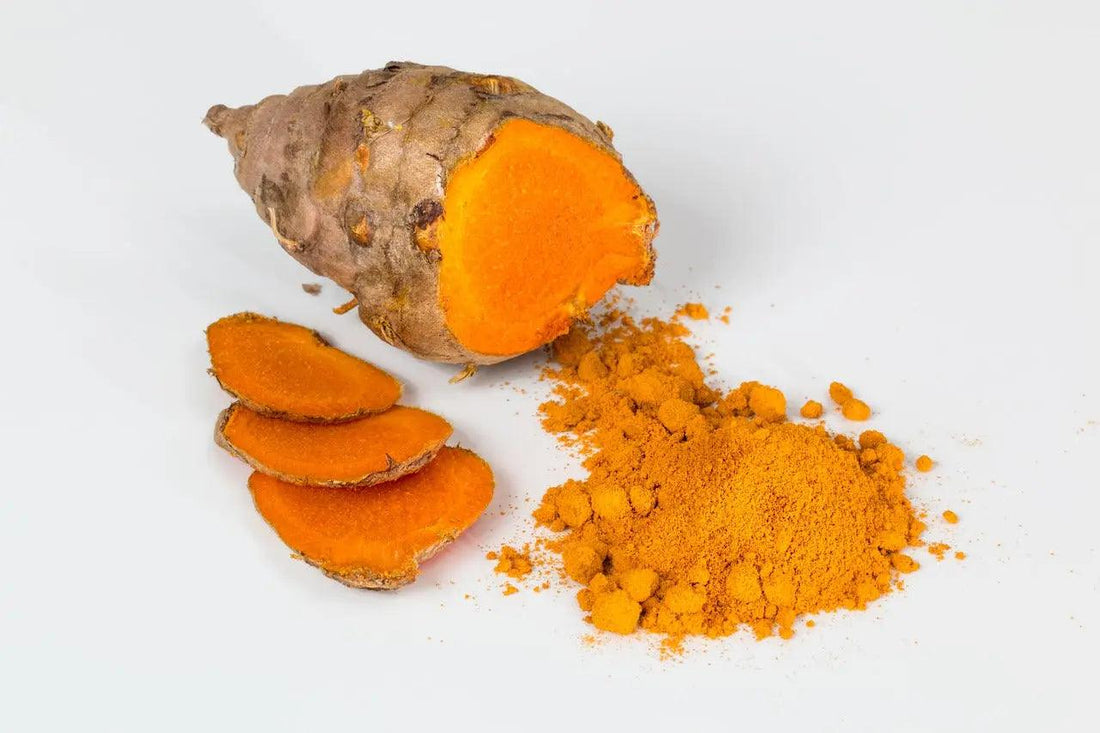
Finding the Best Time to Take Turmeric for Inflammation
Share
Fight the flames. Turmeric is fast becoming America’s favorite natural medicine for inflammation, including joint and intestinal pain. Yet millions of Americans who could benefit from turmeric aren’t taking it.
A common problem with taking turmeric is finding the right time to take it. If you can figure out the right time, you can find great ways to integrate it into your diet and enjoy its numerous health benefits. Here is what you must know to take turmeric at the perfect time.
How Turmeric Works
In order to figure out the best time to take turmeric, you must understand how turmeric helps with inflammation. One of turmeric’s main ingredients is curcumin, a powerful antioxidant that can affect inflammation in several ways.
A 2021 study found that curcumin regulates pathways that carry inflammatory signals to the brain. This regulation can diminish the pain you experience from inflammation, regardless of where you feel the pain. Curcumin can also decrease levels of hormones and chemicals that aggravate inflammation.
Oxidative stress can inflame your cells and contribute to diseases like cancer. Curcumin is an antioxidant, protecting your cells from excessive oxygen. It can also protect immune cells, helping you fight off infections and diseases.
Though turmeric is highly effective at relieving inflammation and pain, it cannot cure all your problems. You must take it alongside other natural ingredients, including full-spectrum hemp oil. You also need to find ways to relieve your inflammation. Inflammation occurs whenever your body is injured or experiences an infection. Be easy on yourself while exercising and boost your immune system by eating fruits and vegetables and getting enough sleep. Treat underlying conditions like diabetes that can contribute to inflammation with your doctor’s advice.
Related: Can CBD Improve Hormone Balance?

The Science of Taking Turmeric
A 2020 study tested turmeric consumption during the day and at night. Scientists measured the turmeric levels in the urine of a group of patients to see if there were any differences in the levels. It found no substantial differences, so the study concluded it doesn’t matter when you take turmeric.
Some doctors have recommendations for their patients about turmeric. Some say you should take it on an empty stomach, as turmeric will not compete with other ingredients in your digestive system. Others recommend you take it with other foods to benefit from all dish ingredients.
When you experience, pain can impact when you should take turmeric. If you experience inflammation in your joints after a workout, take turmeric immediately to relieve your pain. If you want to prevent inflammation from occurring, take turmeric before you work out. Sleep deprivation and mental stress can make inflammation and pain worse. Try having turmeric throughout the day when you’re feeling tired or stressed.
Looking for pain relief using all-natural ingredients? Browse Triple Crown Organics’ collection of CBD products for pain and inflammation today.
Integrating Turmeric Into Your Life
You can consume turmeric however you want. Finding multiple ways of consuming it can make it easier to integrate into your routines, so take a look at a few methods of boosting your turmeric levels.
Cook With Turmeric
Turmeric is a significant ingredient in Southeast Asian cuisine. Many dishes like chicken tikka masala, roasted cauliflower, and balti contain turmeric. It has an earthy and robust flavor similar to black pepper, so you only need to include half a teaspoon to taste it. It is a common ingredient in many curry powders, so read the ingredient label of your powder to see if you already have it. Many dishes with turmeric are low-fat, low-calorie, and high in nutrients, so they are great for people with obesity and diabetes.
Both ground turmeric and turmeric roots have anti-inflammatory properties, so feel free to use either one. Ground turmeric is easier to cook, especially when making soup or stews. Sliced roots work better with grain dishes; you can also eat them by themselves as a snack or pickle them.
Turmeric has a vibrant orange, so if you want to add color to your food, mix half a teaspoon of ground turmeric into it. You can add a spoonful to macaroni and cheese or a carrot cake.
You can take turmeric supplements, but high amounts of it can cause kidney, digestive, and intestinal problems. If you feel you are not getting enough turmeric through your diet, try to find other anti-inflammatory products like CBD oil that can help. Talk to your doctor about how much turmeric and CBD you should take.
Related: 5 Benefits of CBD for Diabetics
Drink Turmeric
If you find turmeric’s flavor too intense, try out turmeric tea. Hot water can dilute the flavor, and you can easily add honey, cinnamon, and other ingredients to your tea. You can buy tea bags in the store or make your own tea by adding powder or roots to boiling water.
You can buy natural CBD tinctures with turmeric in them. You can place the tincture under your tongue, allowing it to enter your bloodstream sooner. If the taste of the tincture or turmeric is too overpowering, mix the tincture into water or tea.
Want to combine full-spectrum CBD with pure turmeric? Buy Triple Crown Organics’ Full Spectrum CBD Tincture with Turmeric right now.

Combine It With Other Ingredients
Curcumin may have strong health effects, but it is hard for your body to absorb large amounts of it. Black pepper has a potent compound called piperine, which, according to a 2017 study, can increase your absorption of curcumin by 2000%. You can make a spice mix with turmeric, black pepper, and other ingredients and season soups and sauces with it.
Turmeric is one member of the ginger family, and combining it with ginger can enhance its effects. You can also receive the health benefits of ginger, including its anti-inflammatory properties. You can eat it with the ground, fresh, or pickled ginger. Ginger tea bags are available in many stores, so buy a few and make tea with ground turmeric in it.
Related: Turmeric vs. Curcumin Isolate